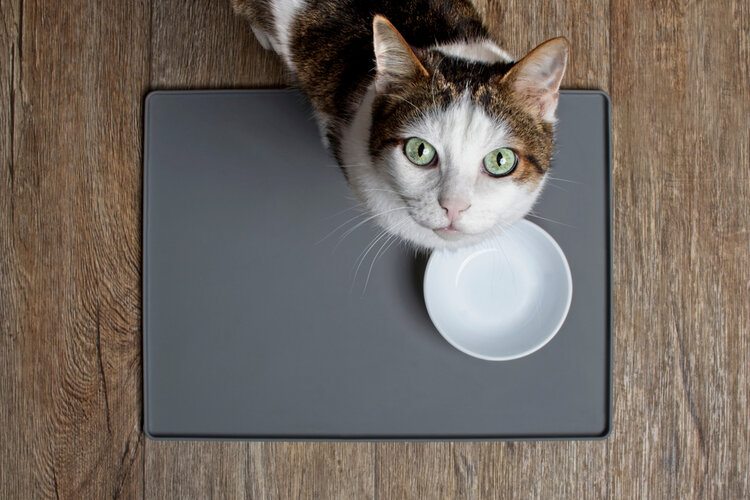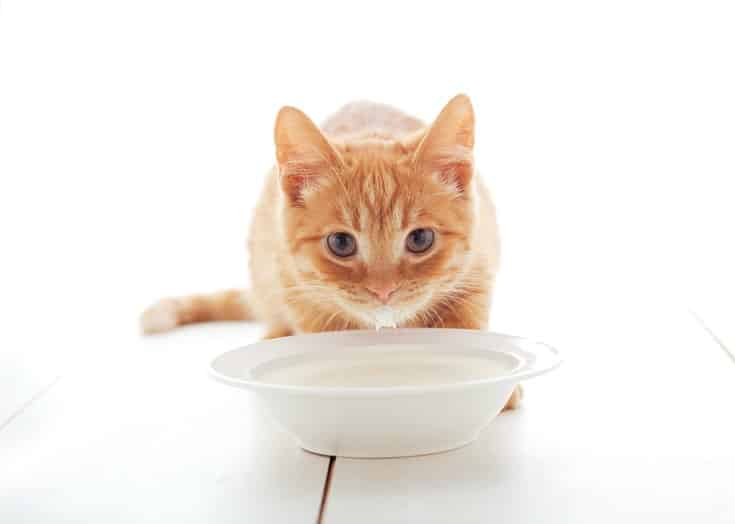The image of the happy cat lapping up milk is an old cliché. While many feline parents assume that their kitties would enjoy a bowl of milk now and then, the surprising truth is that dairy products from cows could be hazardous to their health. Most cats can’t even digest dairy.
But what about lactose-free milk? Is that good for your kitty? The simple answer is yes. You can give your feline lactose-free milk. You can find it at many pet and grocery stores. However, the longer answer is more complicated. In this article, we’ll discuss everything you need to know about cats and milk.
Why is Milk Bad for My Cat?
Like some people, many cats are lactose intolerant, and their bodies lack the proper enzymes needed to digest lactose. Lactose is a sugar in dairy products that requires the action of a specific enzyme called lactase to be broken down to be properly digested. Most adult cats lack the enzyme, and lactose sugar will sit in your cat’s stomach rather than being digested.
Undigested lactose gets fermented by the cat’s intestinal bacteria, which causes stomach trouble, including bloating, pain, vomiting, and diarrhea. While not all cats are lactose intolerant, most of them are. That is why it’s crucial to avoid feeding dairy products such as cheese and milk.

Can Kittens Drink Milk?
Kittens can safely digest milk until they have been weaned. When they are around 8 weeks old, they’ll lose the enzymes needed to process lactose. But even as babies, dairy isn’t the best option for a kitten. That is especially true if you’re bottle-feeding a kitten that has not been weaned.
Instead, purchase a specialized kitten formula. It has the adequate balance of nutrients and vital vitamins your kitten needs.
Why Are Cats Attracted to Milk?
Cat enjoys milk because of its high fat and protein content. Still, that doesn’t mean that the milk is good for them.
Can My Cat Drink Lactose-Free Milk?
Lactose-free milk is a dairy product with the enzymes needed to break down the sugar. While people with lactose intolerance can enjoy a cold glass of lactose-free milk, can your cat?
While a small saucer of lactose-free milk can be a tasty treat for your kitty now and then, you shouldn’t regularly serve it. As dull as it may seem, water is always best for cats.
Other Types of Milk
While lactose-free milk is safe for your cat to consume, other milk products, such as almond milk and soy milk, can harm your pet. A cat’s sensitive digestive system does not have the proper carbohydrate-metabolizing enzymes to effectively break down and digest the plant-based proteins found in soy. Thus, your kitty won’t be able to tolerate soy milk.
Similarly, almond milk could be dangerous for your cat. While it’s not considered toxic, the high fat and oil content can cause gastrointestinal problems such as vomiting and diarrhea. Additionally, almonds can cause pancreatitis in cats. Coconut milk will have the same impact that almond milk has.
Goat milk, while similar to cow milk, has a slightly lower lactose level. Some studies have concluded that it is also more digestible than cow milk. However, avoid giving your cat goat milk if they are lactose intolerant.

Final Thought
While we may think milk is a good treat and even a good source of nutrients for our cats, it is unhealthy for them. While lactose-free milk is safe, it doesn’t provide the essential nutrients your cat needs. By feeding your feline friend a proper diet of high-quality cat food and plenty of water, they’ll be perfectly healthy, and you can have all the milk to yourself.
You might be interested in:
- 6 Best Kitten Milk Replacers – Reviews & Top Picks
- Why Does My Cat Drink Out of My Water Glass? (8 Common Reasons)
Featured Image Credit: Alena Ozerova, Shutterstock










